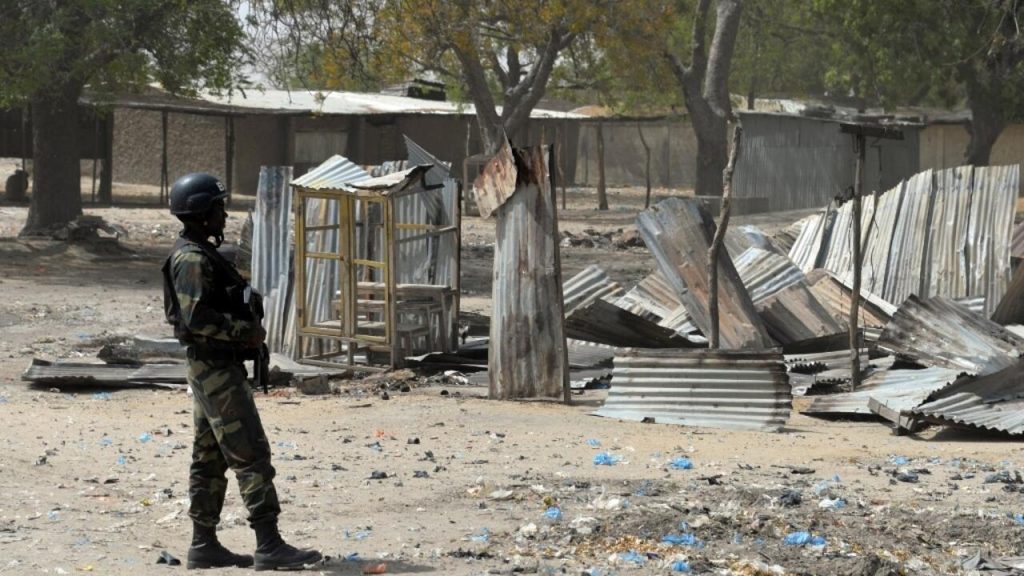Kidnappings and abductions for ransom are an increasing threat in northern Cameroon. Terrorists come from several nations across the borders to capture or hide their victims. Many of these terrorists are members of Boko Haram and Islamic State West Africa Province, ISWAP from neighbouring Nigeria.
According to Jeune Afrique, kidnappers in northern Cameroon have collected millions of dollars a year since 2017 despite government efforts to quell the threat, including deploying the military to the region and establishing vigilante committees.
Five people were kidnapped on the Mayo Djarendi-Madingring road in northern Cameroon in early September 2024.
According to the Actu Cameroun newspaper, the abductors are known for their activity in the Mayo-Rey department. They demanded a 40,000,000 Central African CFA francs (almost $67,000) ransom to release the hostages.
The victims worked for the Forests and Environment Sector Programme. This raises concerns about the safety of aid workers and development programme employees in the region.
In late October 2023, terrorists kidnapped 40 people from Chad and Cameroon in the northern Cameroonian commune of Touboro.
Touboro Mayor Célestin Yandal said the victims were returning home after selling livestock at a local market.
“Sunday is the day of the Touboro livestock market,” Yandal told the BBC. “The Chadians come with livestock, which they sell and leave, as it is just 25 kilometers from Chad. So, on the way back at 5 p.m., they were ambushed in a small reserve in the village called Mba Lainde.
According to the Institute for Security Studies (ISS), Kidnappers in northern Cameroon typically target farmers, cattle breeders, shopkeepers, and humanitarian workers due to their perceived ability to pay a ransom,
In 2019, Kildadi Taguiéké Boukar, governor of the Adamaoua region, asked a local shepherd why he decided to participate in a kidnapping-for-ransom plot.
“Since I was born, my father has never given me 100,000 CFA francs [about $167],” the shepherd said in a Jeune Afrique report. “But when these guys [kidnappers] arrived, they offered me 600,000 CFA francs [more than $1,000] to show them the house of the biggest breeder in the village. I did it.”
Former hostages told the ISS that kidnappers come from various nations. One freed hostage in Garoua said his abductors were Nigerian, while another said some of his abductors were Sudanese.
Other former hostages said their kidnappers were predominantly Fulani, Mbororo, and Arab Choa herders who spoke Fulfulde or Arabic. Their accents varied and included those heard in Cameroon, Chad, Niger, Sudan, and around Central Africa.
Several interviewees suggested that kidnappers also include armed groups in Cameroon, former rebels, and members of the security sector.
After collecting information from locals, the criminals then intimidate or blackmail potential victims by demanding that money be sent to a specific location, the ISS reported. If that doesn’t work, they threaten kidnapping. Once abducted, victims typically are taken to remote mountain areas.
By phone, the kidnappers designate a ransom drop-off location and warn victims’ families not to alert authorities. Some victims are killed when their ransom is not paid.
Due to the cross-border nature of the kidnappings, ISS research officer Célestin Delanga argued for greater cooperation between Cameroon, the Central African Republic, Chad, and Nigeria.
He said the Multinational Joint Task Force, committed to fighting Boko Haram, could extend its operations to help address the issue, while authorities in border-sharing countries should more effectively monitor human trafficking, Delanga wrote, adding that cellphone companies could help geolocate kidnapping victims.
The ISS says in just three years from 2015 to 2018, kidnappers in North Cameroon collected ransom money of around CFAF 2 billion, (€3 million) according to Garoua police. This crime has soared despite government measures such as military deployment and the creation of vigilante committees.

